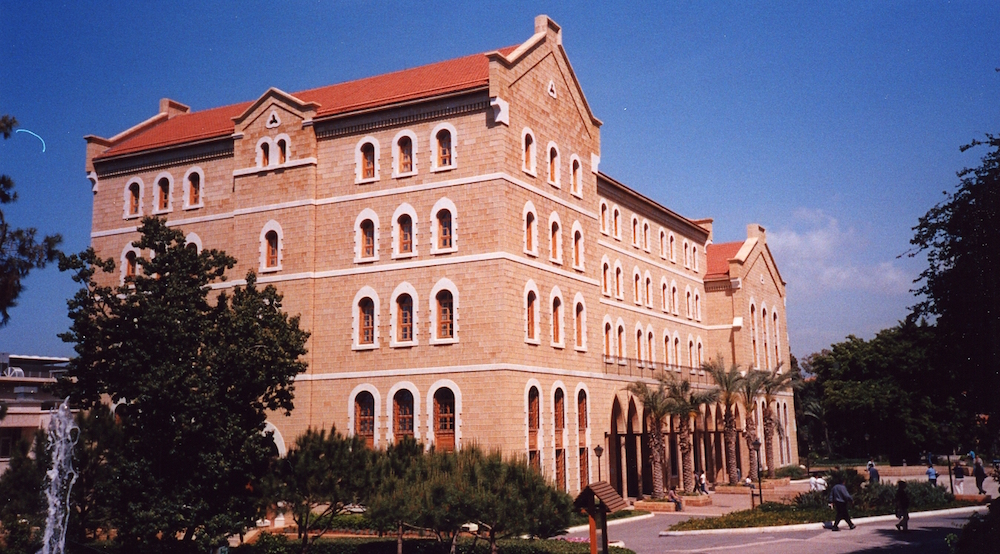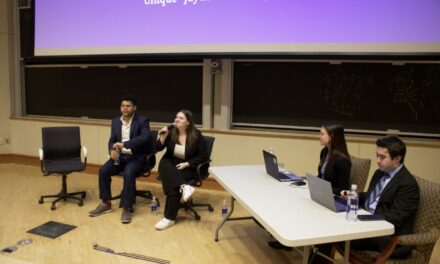Fadlo R. Khuri — deputy director of Emory’s Winship Cancer Institute, professor and chairman of the Department of Hematology and Medical Oncology and executive associate dean of research at Emory Medical School — will begin as the 16th president of American University in Beirut (AUB) in Lebanon this September, the AUB Board of Trustees announced on March 19.
The Board selected Khuri to replace current President Peter Dorman, effective Sept. 1, 2015.
“[I have] an opportunity to champion a liberal education and help build the next phase of a major research University … that has a tremendous impact in the Middle East and in the world,” Khuri said. “It will be challenging, but I’m excited.”
Khuri, who has been at Emory for 13 years, is considered a leading researcher and physician in the field of lung and aerodigestive medical oncology. Prior to joining Emory’s Winship Cancer Institute in 2003, Khuri worked at the University of Texas MD Anderson Cancer Center from 1995 to 2002. He has served as a member of the AUB Board of Trustees since 2014.
In his new role as a university president, Khuri said he will have to put his cancer research on hold in order to handle the unique demands of the position. However, he does not intend to quit working altogether in the field that he loves.
“I’m hopeful to at least keep some role in the area to help [AUB] do its own cancer research,” Khuri said. “It’s very hard for a university president to be able to engage in clinical or laboratory research, so I’m going to have to satisfy myself by continuing to do some teaching and scaled-back patient care.”
Khuri’s main area of research at Emory involves developing innovative approaches to the prevention and treatment of lung, head and neck cancers, with a particular emphasis on tobacco-related cancer treatment. He is the co-head of the $12.5 million Head and Neck Cancer Specialized Program of Research Excellence (SPORE), which aims to discover new methods of combatting head and neck cancer.
During his time at Emory, Khuri won numerous awards for his leadership and research, including the American Association for Cancer Research’s (AARC) Richard and Hinda Rosenthal Memorial Award, which is given annually to a medical investigator under 50 years old who is making promising strides in the field of cancer research.
In 2014, Khuri’s peers selected him as a Fellow of the American Association for the Advancement of Science. Additionally, he has published over 120 articles in top peer-reviewed medical journals, and he serves on the editorial boards of seven of those journals.
Khuri remarked that his tenure at Emory has prepared him for the challenges he expects to face as a university president.
“I had a lot of leadership experience at Emory,” Khuri said. “I had the opportunity to recruit faculty, build a department pretty much from scratch, help lead the Cancer Center and [perform] some national leadership roles as well.”
Khuri acknowledged that the issues he will have to confront at AUB are quite different from those he has dealt with at Emory. For example, just last year, AUB students organized protests to express their outrage over an increase in their tuition.
Nevertheless, Khuri, whose parents, grandfather and multiple great grandparents attended AUB, said that the prospect of solving complex problems — such as how to raise funding for research, keep down tuition costs and recruit even more talented students and professors — was a part of the reason he took the job.
“[The Board of AUB] essentially made the case to me that I could make a bigger difference there than I could at Emory,” Khuri said. “[I] want to make a difference in the best way that [I] can.”
Boston-born Khuri was raised in Beirut, where he attended AUB from 1981 to 1982. He subsequently returned to the United States, where he earned his bachelor’s degree from Yale University and his MD from Columbia University. He then moved to Boston to complete his residency at the Boston City Hospital and his fellowship in hematology and medical oncology at the Tufts-New England Medical Center.
According to his colleagues, Khuri’s impressive personal accomplishments at Emory indicate only a fraction of the important work that he’s done on behalf of the University as a whole.
For example, Khuri played a key role in helping Winship secure a prestigious Cancer Center Designation from the National Cancer Institute (NCI) in 2007, according to CEO of Emory’s Woodruff Health Sciences Center and Executive Vice President for Health Affairs at Emory S. Wright Caughman.
Winship is the first and only cancer institute in Georgia to have been designated by the NCI, and under Khuri’s leadership, Winship was selected as one of the 25 best cancer programs in the nation by US News and World Report in 2014.
“He’s brought outstanding clinical care, education and training and cutting-edge research to the institution that has enabled us to move to among the top ranks of NCI designated cancer centers in the country,” Caughman said.
Caughman explained that Khuri’s success at Emory was a result of “his commitment to excellence, his compassion for patients, his curiosity and intensity for discoveries to improve health and his collegiality across the institution.”
Several of Khuri’s students said that Khuri’s departure was a great loss for the University.
“He has had an instrumental role in educating me and in helping me to develop my career and understanding of cancer,” Third-year fellow in the Emory University School of Medicine’s Department of Hematology and Medical Oncology Daniel Goldstein said. “He’s left the legacy of having built a phenomenal department with an incredible collegiate atmosphere and a large number of faculty members from excellent institutions, dedicated towards treatment of patients, education and research.”
Conor Steuer, another third-year fellow in the Emory University School of Medicine’s Department of Hematology and Medical Oncology, remarked that Khuri had “been a mentor” who instilled in him a “passion” for research and patient care. Steuer said he was disappointed that Khuri was leaving but recognized that the AUB job “is a great opportunity for him.”
As Khuri’s time at Emory winds down, he says that he plans to continue leading Winship and his department in a positive direction, in part by assisting with the national search for his successor.
– By Luke White






